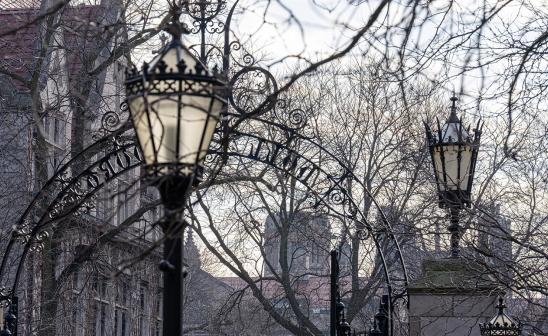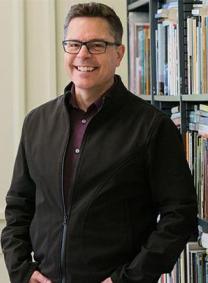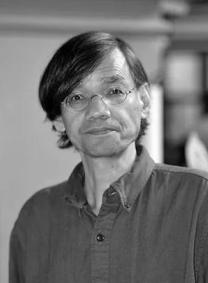3 SSD Faculty Receive Named, Distinguished Professorships

This article highlight is adapted from UChicago News. Read the full story here.
Eighteen University of Chicago faculty members have received distinguished service professorships or named professorships.
Profs. Omri Ben-Shahar, Michael Bourdaghs, Veronica Guerrieri, Guido Lorenzoni, Harold Pollack and Mauricio Tenorio have been named distinguished service professors. Profs. Adam Chilton, Yoonsun Choi, Henry Hoffmann, Hakan Karateke, Greg Kaplan, Derek Kennet, Bo Li, Joseph Masco, James T. Robinson, Emily Rogalski, Christopher Wild and Ce Zhang have received named professorships.
The appointments were effective Jan. 1, 2024, unless otherwise noted.
Division of the Social Sciences
Greg Kaplan has been named the Alvin H. Baum Professor in the Kenneth C. Griffin Department of Economics and the College.
Kaplan is a leading applied economist focusing primarily on macroeconomics and household behavior, whose findings have attracted significant attention in academic and policy circles. He has published extensively on the topics of monetary and fiscal policy, risk sharing, inequality, unemployment, household formation, migration and consumer spending.
Kaplan’s research has established the existence and importance of wealthy hand-to-mouth households in the United States. These households, accounting for about a quarter of total US households, own substantial illiquid assets but few liquid assets, resulting in consumption that closely tracks income despite high net worth. Since these wealthy hand-to-mouth households represent a significant share of aggregate consumption, they have major macroeconomic implications that Kaplan has explored in Heterogeneous Agent New Keynesian (HANK) models.
Joseph Masco has been named the Samuel N. Harper Professor in the Department of Anthropology and the College.
An internationally recognized scholar operating in the intersections of science studies, anthropology and American culture, Masco’s contributions to our understanding of the imbrication of technoscientific revolution, existential risk and national security have unfolded across a trio of books: the award-winning “The Nuclear Borderlands: The Manhattan Project in Cold War New Mexico” (2006); “The Theater of Operations: National Security Affect from the Cold War to the War on Terror” (2014); and “The Future of Fallout, and Other Episodes in Radioactive Worldmaking” (2021).
Marked by a keenly sensitive attention to materiality, affect and psychosocial meaning, Masco’s work has brought international recognition. His latest publications include an edited volume with Deborah Thomas, “Sovereignty Unhinged: An Illustrated Primer for the Study of Present Intensities, Disavowals and Temporal Derangements” (2023), and a co-edited volume with Lisa Wedeen, “Conspiracy/Theory” (2024), which considers the stakes of epistemology in an age of disinformation and polarization. His work continues via a long-running project at the Neubauer Collegium on “Engineered Worlds,” a collaboration focused on planetary scale environmental emergency.
Masco’s work has been supported by the American Council of Learned Societies, The John D. and Catherine T. MacArthur Foundation, the National Endowment for the Humanities and The Wenner-Gren Foundation. He has been a residential fellow at the School for Advanced Research, held a Benjamin Meaker Visiting Professorship at the Institute for Advanced Study (University of Bristol) and has been a member of the Institute for Advanced Study (Princeton). In 2017, he was awarded a Faculty Award for Excellence in Graduate Teaching and Mentoring at the University of Chicago.
Mauricio Tenorio has been named the Gustavus F. and Ann M. Swift Distinguished Service Professor in the Department of History and the College.
A prolific author of 15 books and well over 50 papers, many of them with top academic publishers and journals, Tenorio is recognized for his extraordinary range of expertise as well as his unparalleled originality as a thinker. His first book, “Mexico at the World’s Fairs: Crafting a Modern Nation” (1996), set the tone by opening with remarks about how “A Thousand and One Nights” might be seen as a model for historical narrative, given the “chaos” that the historian is presented with by actuality.
Tenorio’s succeeding works on the history of cities, languages, and conceptions of history—from “‘I Speak of the City’: Mexico City at the Turn of the Twentieth Century” (2013) to “Clio´s Laws: On History and Language” (2019), among others—have similarly shown a remarkable ability to link the whimsical to the profound, the psychological to the sociological, and the intimately particular to the universal.
 THE UNIVERSITY OF CHICAGO
THE UNIVERSITY OF CHICAGO




